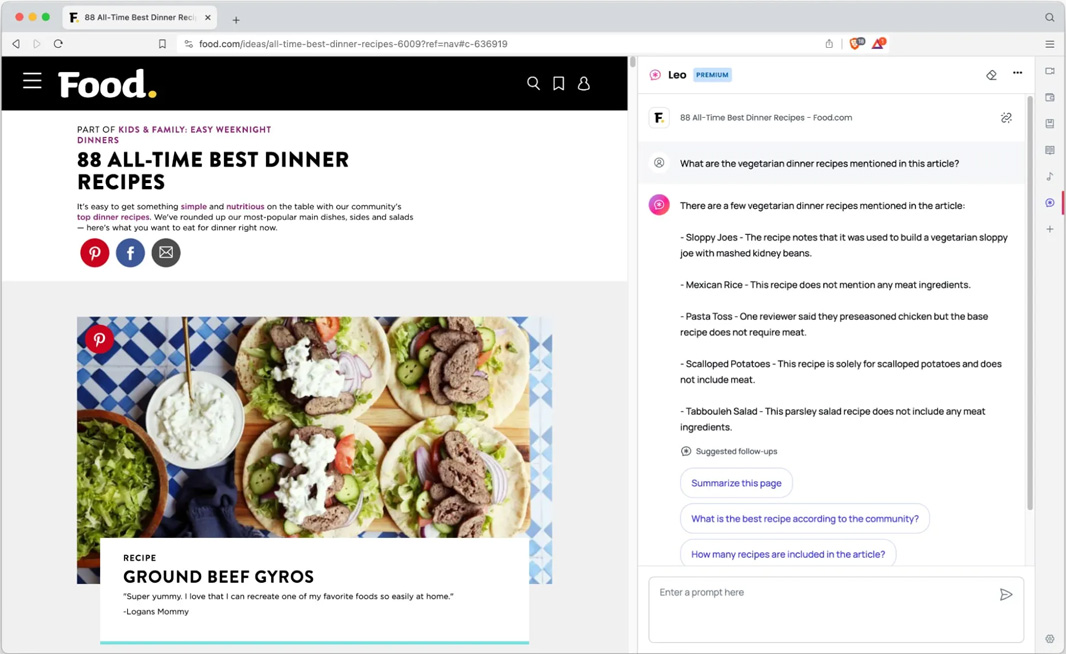
Brave announced today that Leo, its AI browser assistant, is now available to users on desktop in Brave 1.60.
“Leo, Brave’s browser AI assistant, can help with all sorts of tasks,” the announcement post explains. “It can create real-time summaries of webpages or videos. It can answer questions about content, or generate new content. It can even translate pages, analyze them, rewrite them, and more. Whether you’re looking for information, trying to solve a problem, or creating content, Leo can help.”
Windows Intelligence In Your Inbox
Sign up for our new free newsletter to get three time-saving tips each Friday — and get free copies of Paul Thurrott’s Windows 11 and Windows 10 Field Guides (normally $9.99) as a special welcome gift!
“*” indicates required fields
Brave began testing Leo in its Nightly builds of the browser back in August, and it’s been able to improve the feature much faster than it’d hoped, thanks to feedback from tens of thousands of users globally. And now Leo offers faster response times, better quality results, an improved user interface, and some new features.
As with other AI assistants we’ve seen this year, Leo provides a conversational, chat-based user interface, but instead of a garish extra button, you simply ask questions in the address bar. (Those who use the Brave sidebar will also find a Leo button there, however.) And because this is Brave, those chats are private, anonymous, and secure. “Leo doesn’t record chats, or use them for model training, and no account or login is required to use Leo,” the company explains.
Brave Leo is free for all users, and it provides access to the Llama 2 large language model from Meta. But there’s also a new Brave Leo Premium subscription that costs $15 per month and adds support for other industry-leading LLMs like Anthropic’s faster and lighter Claude Instant, higher rate limits, and early access to new features.
“With Claude’s advanced capabilities and Brave’s focus on user privacy and control, we hope to set a new standard for helpful, responsible, and context-sensitive AI interactions,” the company says. “Anthropic used Brave’s Search API to train their latest model, Claude 2, on high-quality data to help optimize Claude’s outputs for retrieval augmented generation (RAG) queries.”
You can learn more on the Brave website.


